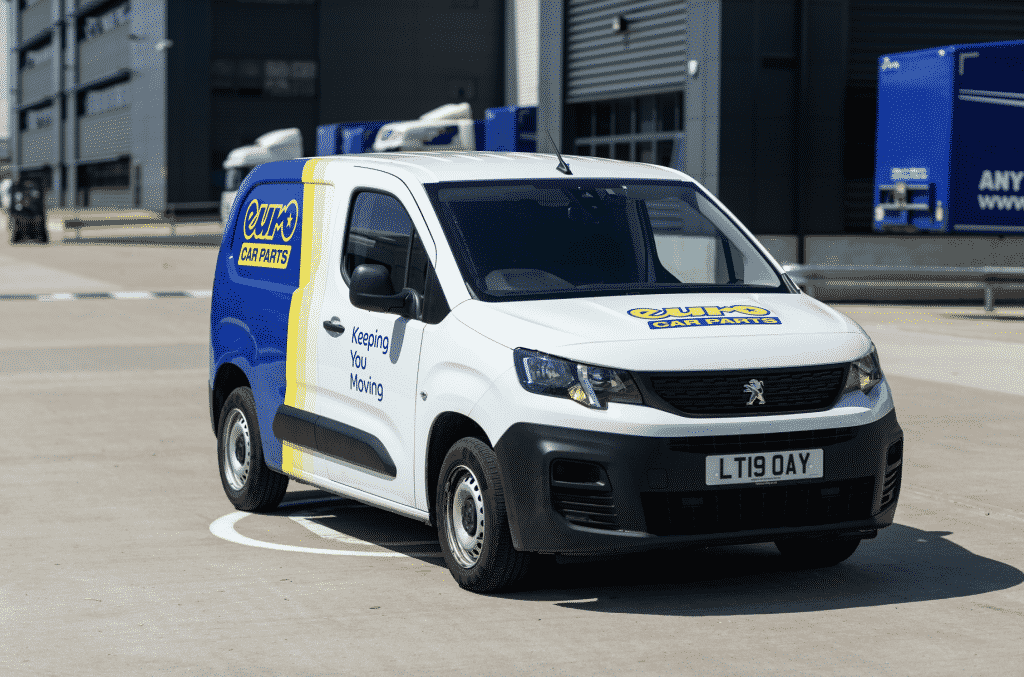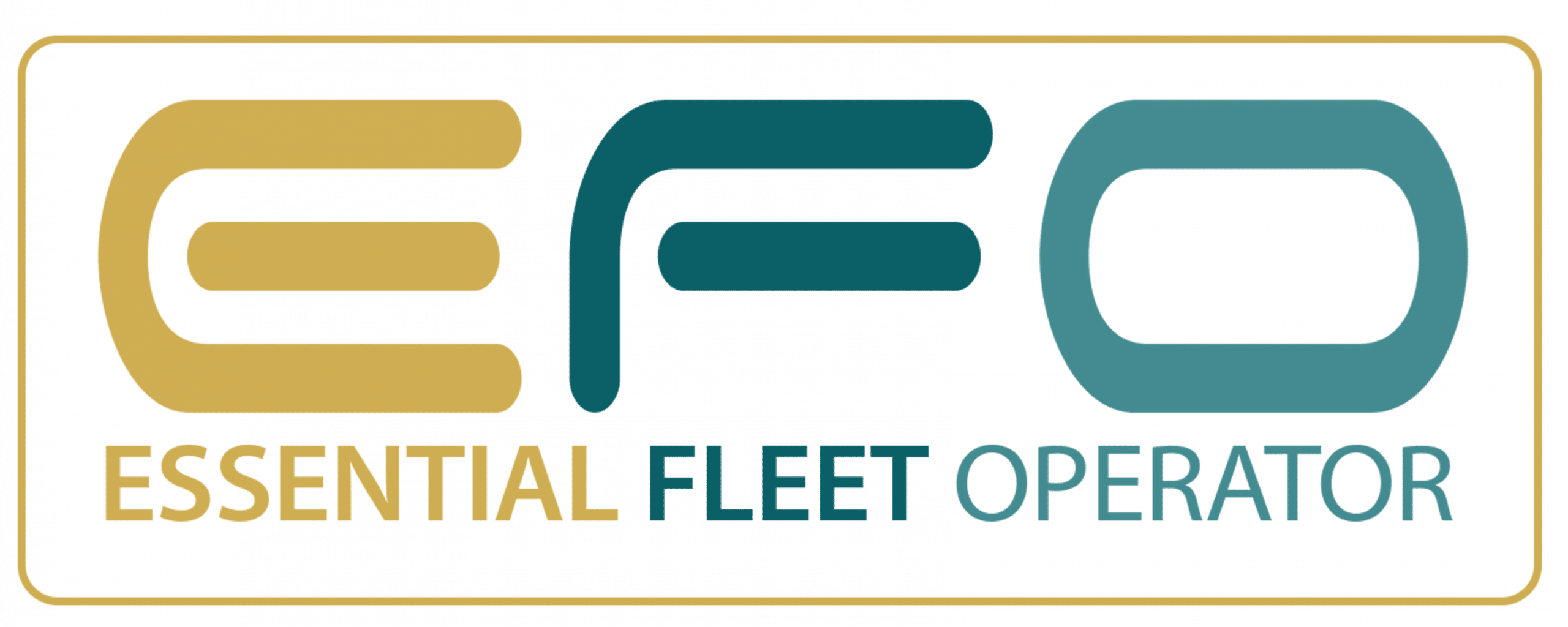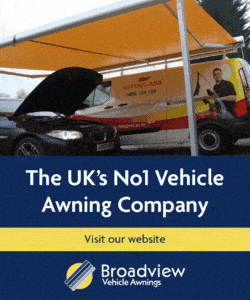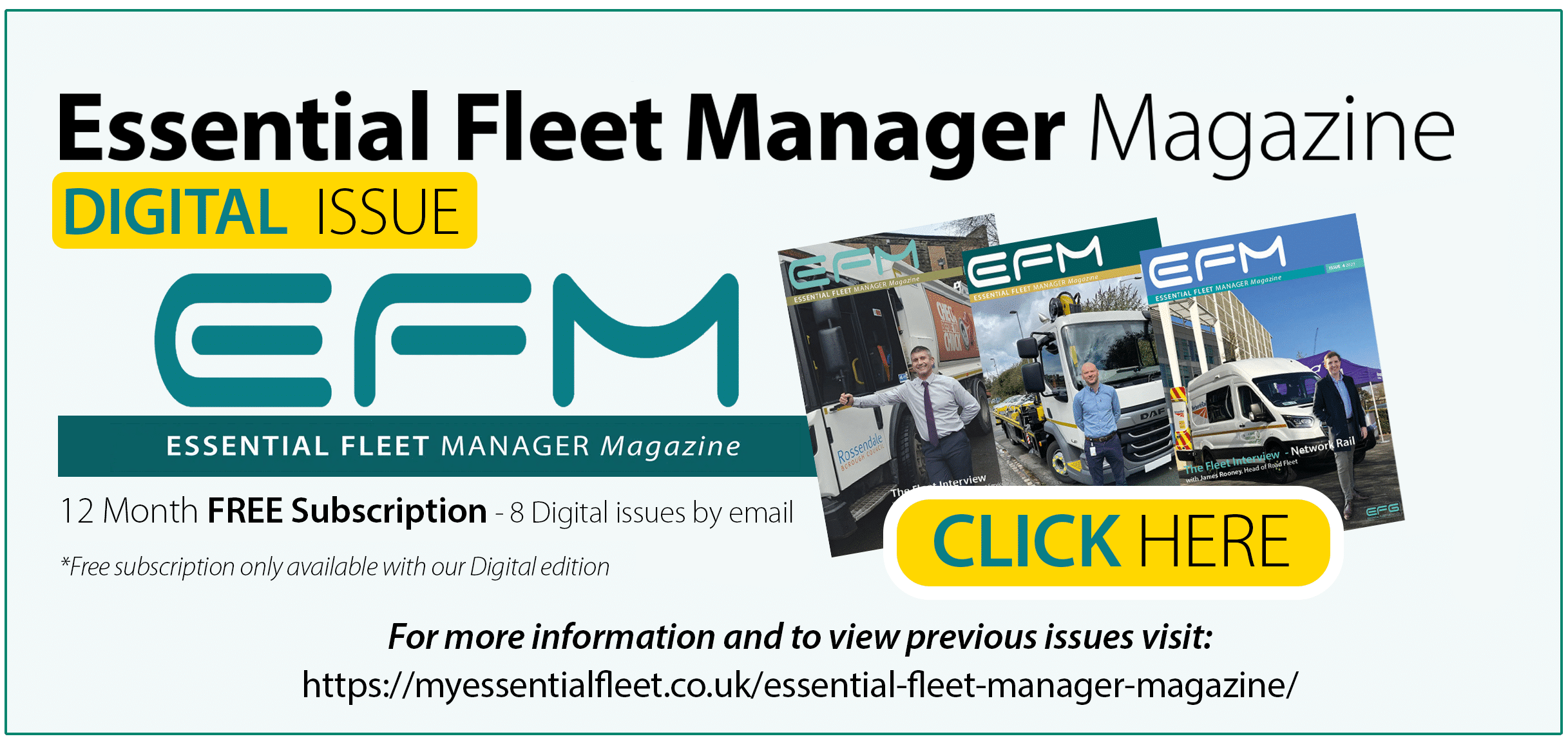Interview with Ted Sakyi, Head of Group Fleet, Euro Car Parts, as featured in Fleet Manager Issue 3 (2020)
How is your fleet made up and how diverse are the assets?
Our fleet is made up of more than 3,000 vehicles, around 95 per cent of which are light commercial vans such as Peugeot Partners or Boxers, and Ford Couriers or Connects. We’ve also got around 120 HGVs, and the rest are company cars.
On joining ECP last year, did you immediately conduct a fleet review?
Yes, absolutely. I carried out a detailed review of the fleet, covering areas including whole life cost, funding, manufacturer and model ranges, environmental and safety considerations, trackers, SMR, fuel and electrification… to name a few.

Interview with Ted Sakyi, Head of Group Fleet, Euro Car Parts, as featured in Fleet Manager Issue 3 (2020)
How is your fleet made up and how diverse are the assets?
Our fleet is made up of more than 3,000 vehicles, around 95 per cent of which are light commercial vans such as Peugeot Partners or Boxers, and Ford Couriers or Connects. We’ve also got around 120 HGVs, and the rest are company cars.
On joining ECP last year, did you immediately conduct a fleet review?
Yes, absolutely. I carried out a detailed review of the fleet, covering areas including whole life cost, funding, manufacturer and model ranges, environmental and safety considerations, trackers, SMR, fuel and electrification… to name a few.
Did you identify any areas that needed significant improvement?
Fleet performance is critical to our whole operation, so it’s something the business is committed to optimising on an ongoing basis. This was part of the appeal of the role for me, as there are always tweaks that can be made.
An area the team and I have really focused on improving is engaging with our driver community.
Our drivers are ambassadors for the Euro Car Parts business, and so it’s incredibly important for them to understand the part they play in the customer journey and the importance of them being champions of road safety every day.
How soon were you able to set objectives and formulate your fleet strategy, and what were the main aims?
Very quickly and, after I presented my strategy, it was implemented almost immediately. The main aims were to reduce fleet risk and accidents through increased driver engagement, implement a detailed fleet replacement programme, reduce whole life fleet cost and improve fleet utilisation, over a five-year period.
Are electric LCVs part of that strategy?
We’ve been considering electrification for some time, especially as more and more manufacturers are introducing electric models, and as the government continues to provide financial support and incentives as part of its Road to Zero strategy.
There is no doubt that electric vehicles will play an increasingly important role in the UK’s LCV market over the next few years. The key is identifying the job roles where they can be integrated seamlessly into our operations, and then phasing the transition – starting with lower-mileage users operating in and around urban areas.
Electric vans are getting better all the time, but there remain concerns. These include purchase and lease cost, vehicle availability, performance, range variance, access to charge points, and charge time.
That said, the upfront cost can be offset by tax incentives and lower running costs, which, combined with congestion charge savings and the obvious environmental and CSR benefits, does make introducing EVs on fleet an attractive proposition – and we have some vehicle trials in the pipeline.
In developing your fleet strategy, how valuable is it to engage with suppliers and form partnerships?
Relationship management has always been key to successful businesses that rely on their partners, regardless of the industry. I want our partners to understand Euro Car Parts’ five-year fleet strategy and to be part of our decision-making process.
Can you say how the use of data and technology assists you in improving safety, risk management and efficiency?
Many of the technologies we fit to our vans as standard are focused on reducing accidents.
Continuous advancements in vehicle technology and the more widespread adoption of ADAS – compulsory on all new registrations from 2020 – will play a major part in making our roads safer.
Historically, these safety systems were available only with certain types of cars and were out of reach of most typical fleet vehicles – I’m glad that they’re available now in commercial vehicles, and they are a standard specification for all new vehicles on the Euro Car Parts fleet. We also have forward-facing cameras and trackers fitted as standard, and will now be rolling out in-cab cameras on all new commercial vehicles, too.
The ability to collect data on areas such as speeding, braking, harsh cornering, acceleration, driving hours and vehicle idling has really helped us to understand what our drivers are doing with our vehicles. This is vital for all fleet managers looking to minimise accident rates within their fleets, and it’s helped us to shape our Road Safety Strategy for the next five years, while having regular, informed conversations with our drivers to discuss areas for improvement.
What systems do you use to manage service, maintenance and repair? We use Jaama Key2 Fleet Software.
How do you ensure that your drivers are operating to the highest possible standards?
Businesses with employees who drive for work must minimise risk both for their employees and other road users.
We have a duty to assess, train and supervise staff who drive as part of their job, and to manage the conditions under which staff drive for work. We give guidance to all line managers on how this should be carried out, including extensive e-learning driver assessment and training. Our HR business partners are involved in the recruitment of all new drivers, who are provided with driver handbooks and policy documents, including vehicle and route familiarisation, when they start with us.
Telematics is used to paint an accurate picture of how our drivers are behaving. Line managers monitor telematics data on an ongoing basis, and ensure all drivers are looking at it as well, to learn how they could improve.
In the event of an accident, there will be an investigation to determine whether the driver’s attitude, skills or behaviour, or the nature of the driving task or vehicle, were contributing factors, and what, if any, action is needed to prevent a repeat occurrence.
If you do identify an issue with a driver, how do you address it? How would your approach differ between an efficiency issue and a safety issue?
Our branch network managers monitor and evaluate driver efficiency, daily and weekly. Where necessary, we agree improvement plans.
Our fleet software captures any infringements or accidents of any kind, which provides us with a detailed overview and the steps that need taking to reduce risk and improve driver behaviour.
Is there an opportunity to share ideas and best practice with your counterparts throughout the LKQ group of companies?
There is a programme of investment already underway to align our UK and Ireland business more closely with our European operation, moving everyone onto the same systems to encourage stronger data sharing and best practice. This process will help us realise the full potential of our international scale, to make us stronger, more competitive and better able to offer a market-leading customer experience.
What was your immediate response to the Covid-19 crisis?
At Euro Car Parts, we have remained open and operational to support key workers throughout this national crisis, whether that’s helping garages keep key customers on the road, or working with the emergency services and roadside assistance services directly.
Ordinary levels of demand were obviously much lower when lockdown was first enforced, and while large parts of our business were operating under capacity, more than 220 of our branches remained open, ensuring we could continue delivering UK-wide coverage.
We also acted early to protect our product supply chains and so as a result have had no issues with stock levels across our range.
As with every business, we are continuing to monitor the impact of the COVID-19 pandemic on the UK and are adapting fast as the situation evolves, so that we and our customers can get back up to full speed as soon as possible.
What practices have been adopted to comply with the guidelines and protect the safety of your drivers and the public?
The safety of our staff, customers and communities remains our primary concern, and we’re keeping our processes under constant review and updating them as required. We are limiting people at our sites and adhering to social distancing and stringent hygiene practices.
We’ve made protective equipment like gloves, antibacterial gels and wipes readily available to all drivers and are regularly cleaning our vans, as well as our branches and retail spaces. We’ve also set up Perspex screens on our counters and will wear latex gloves to serve customers and while on delivery routes. We will of course continue to follow the latest government guidelines.
What can be learnt from the crisis and be carried forward when restrictions are lifted?
In many ways, the coronavirus outbreak has brought the best out in people. There’s been so much compassion and a real sense of community within our business, as people realise the value of what we do and the difference we can make. We’ve seen colleagues from all over the country come together and go the extra mile to help others, whether that’s offering free parts to key workers or raising funds for the NHS.
We’ve also had to adapt the way we work, integrating more technology into our business to help us stay connected, and there’s an opportunity for our customers to make some positive changes too. Technology has the potential to increase both the quality and efficiency of work carried out on the independent garage network. We’re helping garages to make the most of this opportunity as they reopen, as well as developing the way they market to and communicate with their own customers.
Visit https://www.eurocarparts.com
As featured in Fleet Manager Issue 3
Operational Efficiencies –The key to the successful LKQ Euro Car Parts Rebrand
VanMate: THE COMPLETE PORTABLE LIFTING AND HANDLING SOLUTION




